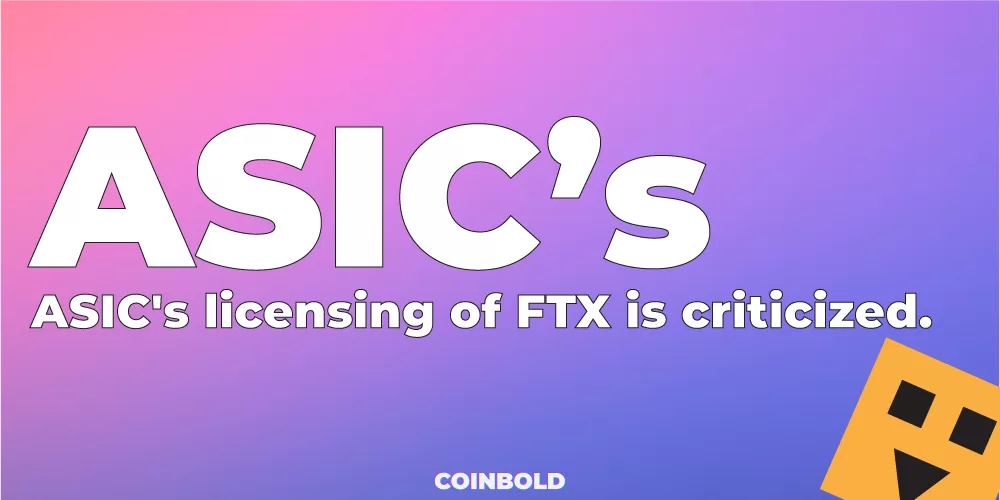Joseph Longo, the chairman of the Australian Securities and Investments Commission (ASIC), is advocating for the closure of a regulatory gap that enabled FTX to obtain an Australian Financial Services License (AFSL) in the country. This gap allowed FTX to operate in the country.
Joe Longo, Chairman of the Australian Securities and Investments Commission (ASIC), stated while speaking before the parliamentary joint committee that the regulator had requested the previous administration grant it the authority to check the qualifications of potential buyers of firms holding financial services licenses.
According to remarks presented in the parliamentary joint committee on companies and financial services, the Australian Financial Services License (AFSL) regime has helped to contribute to the lack of client confidence in the unpredictable market.
In March of this year, FTX Australia launched their business after successfully obtaining an AFSL. This permission, on the other hand, was made possible as a direct consequence of the company’s purchase of IFS Markets. According to the information provided to the committee, the ASIC did not conduct any checks on the FTX business or its directors.
During a review of the authority of the commission in 2017, when Scott Morrison was the treasurer, the Australian Securities and Investments Commission (ASIC) brought up the commission’s lack of authority to examine licenses with the Treasury; however, the previous administration did not close the gap.
Senator Deborah O’Neill, who was serving as the chairperson of the legislative joint committee, exhibited amazement when she learned the information. According to Senator O’Neill, a great number of people would believe that the holder of an AFSL had been granted clearance by ASIC.
O’Neill made the following statement: “There is a tremendous hole here. In addition to the trading of cryptocurrencies in and of itself, there is no assurance that there will be honesty simply because you have an AFSL that has been approved by ASIC.
“There has been very little or none of [corporate governance] at FTX. We are discussing a true cowboy who came in, paid the money [for an AFSL], and stayed… An AFSL was granted, in all essential respects, by the Australian Securities and Investments Commission… However, there is a significant amount of danger involved,” O’Neill said.
According to Longo, one of the most significant shortcomings of FTX was their lack of custody control. He said that the issue at hand is significantly distinct from the fluctuations in the prices of cryptocurrencies.
According to Greg Yanco, the director of markets at ASIC, the fact that acquirers have become fit and suitable people for hiring according to the AFS acquisition criteria makes it difficult for ASIC to dismiss requests.
Longo cautioned the government against rushing into crypto regulation, stressing that while Europe was ahead of the curve, laws in the rapidly developing industry were still being found to be inadequate. He warned the government not to hurry into crypto regulation.
According to Lono, cryptocurrency is “inherently speculative, volatile, and very dangerous,” and investors should “be prepared to lose all of their money” if they choose to put their money into it.
According to Warren Day, the chief operating officer of the Australian Securities and Investments Commission (ASIC), when an AFSL was being issued, ASIC would conduct a very quick investigation to determine whether or not new holders were qualified.
Day testified in front of the committee that it was an extremely problematic situation in which the regulator was unable to evaluate those who had obtained AFS licenses and the law did not permit them to conduct a new evaluation of that license and the new license holder. Day stated that it was an extremely problematic situation.
The license held by FTX was revoked by the Australian Securities and Investments Commission (ASIC) one month ago, on the same day that FTX and its sister firm, Alameda Research, together with FTX Group entities, comprising 130 companies, filed for chapter 11 bankruptcy.
Compiled by Coinbold







